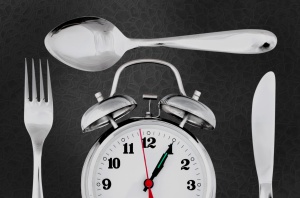 If you have ever worked 24/7 then I’d say there’s a good chance you’ve experienced weight gain and/or erratic weight fluctuations at some point in your career. It kind of comes with the territory when we work irregular hours.
If you have ever worked 24/7 then I’d say there’s a good chance you’ve experienced weight gain and/or erratic weight fluctuations at some point in your career. It kind of comes with the territory when we work irregular hours.
I for one certainly did.
Within my first 12 months of starting shift work I had gained 10 kilograms which was a lot because I’d always been quite lean and healthy. In fact growing up my sister used to call me ‘Emu Legs’ because I was fairly skinny – such a beautiful term of affection only a sister could impart on her little sister and be forgiven!
But despite the weight gain and fluctuations, I have to admit I was one of the “lucky” ones.
Why? Because research has shown shift workers are at higher risk of developing obesity, peptic ulcers, gastrointestinal problems, irregular blood sugar levels, metabolic syndrome – to name a few.
And whilst a lot of these complaints can be linked to the quality of the diet (a higher intake of processed and refined foods) and irregular eating times, according to a study published in the Scandinavian Journal of Work, Environment and Health in 2010 there are other factors which affect our metabolism and include:
- Psychosocial stress
- Disrupted circadian rhythms
- Physical inactivity
- Sleep debt and
- Insufficient time for rest and revitalization
You see under “normal” conditions, our eating patterns are linked to our circadian rhythms which are regulated in the hypothalamus – an area of the brain which is responsible for the production of hormones.
However laboratory studies have shown that partial sleep deprivation causes changes in two of the hormones involved in the regulation of food intake which include:
- Ghrelin – a hormone which increases our appetite but increases even more when we’re sleep deprived.
- Leptin – a hormone which decreases our appetite however decreases even more when we’re sleep deprived.
Essentially the changes to the normal functioning of these hormones can actually cause us to overeat and/or eat when we’re not necessarily hungry.
So it’s not your fault you’re putting on weight – it’s your circadian rhythms!
Well partly anyway.
Just have a think about this – when was the last time you really listened to those hunger pangs and only ate when you were hungry?
Because more often than not we eat regardless and this puts a lot of added strain on our digestive system because it’s essentially “not ready” to receive, digest and break down any food. Unfortunately when we also eat at erratic times, especially during the night, it can disturb intestinal motility which affects the digestion, absorption, and utilization of nutrients.
All of these factors can add to our feelings of fatigue, lethargy, and increased weight gain.
Of course I totally understand there are times when we have no choice but to eat (whether we’re hungry or not) thanks to time allocated meal breaks.
But we’re not at work all of the time – and we’re not sleep deprived all of the time.
These “hunger hormones” can certainly play havoc on our eating habits – especially if you’re a sleep-deprived shift worker.
However if you stick to as normal of an eating pattern as you possibly can (especially when you’re not at work), and make a conscious effort not to overeat and overeat on all of the bad stuff (highly processed, highly sugared foods) you will be able to beat those hunger hormones at their game and prevent yourself from gaining all those extra kilo’s I promise! If I can do it – I’m sure you can too :-).



0 Comments